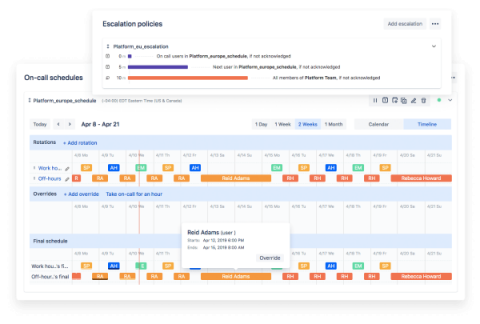Operations | Monitoring | ITSM | DevOps | Cloud
Latest News
Insights into Observability Tools: Commercial vs. Open-Source
Observability has become a critical aspect of modern software development and operations, allowing organizations to gain insights into the health and performance of their applications and systems. One of the key decisions when implementing observability is choosing between commercial or open-source tools. We spoke to several professionals who shared their experiences and insights on this topic, shedding light on the pros and cons of each approach.
Major Incident Management with Zenduty, Grafana, Slack and Zendesk
In the current fast-paced world, businesses are seeking methods to increase their efficiency and simplify their processes. But, there are times when teams are unaware of an issue at the initial stage, leading to a bad customer experience. For example, you are a part of the Infrastructure team, where your primary responsibility is to check resources and notify when they reach their maximum capacity. Let's say due to an anomalous traffic load, our resource CPU utilization goes above 90%.
7 Types of Incident Response Tools
Incident response tools are software applications or platforms designed to assist security teams in identifying, managing, and resolving cybersecurity incidents. Incident response is a crucial part of an organization’s cybersecurity strategy, making it possible to detect threats, analyze vulnerabilities, respond to attacks, and recover from security breaches. Incident response tools are vital for safeguarding organizations against evolving cyber threats.
How Sony Interactive Entertainment drives better IT operations based on alert data
Sony Interactive Entertainment (SIE) is a multinational video game and digital entertainment company owned by global conglomerate Sony. SIE primarily operates the PlayStation brand of video game consoles and products.
Insights on Hiring Engineers with Different Tech Stacks
In the world of software engineering, the choice of programming languages, frameworks, and technologies is constantly evolving. As a result, hiring engineers who have experience in different tech stacks has become a common practice for many companies. However, this practice also raises questions and concerns about the potential challenges and advantages of hiring engineers who work in predominantly different stacks.
Learning from incidents is not the goal
Learning from incidents has become something of a hot topic within the software industry, and for good reason. Analyzing mistakes and mishaps can help organizations avoid similar issues in the future, leading to improved operations and increased safety. But too often we treat learning from incidents as the end goal, rather than a means to achieving greater business success. The goal is not for our organisations to learn from incidents: it’s for them to be better, more successful businesses.
Status page best practices
Although some organizations may hesitate to publicly announce when they have an incident — afraid that acknowledging outages will scare customers away — the opposite is often true. When you proactively communicate with your customers, even during bad times, you have the opportunity to not only build trust but also buy grace during the incident.
Our Opsgenie integration is now available
When we detect a problem with your site we can notify you via mail, a slack message, a webhook, or any of our other notifications channels. For most of our users this is enough, but those work in larger teams often need more flexibility. Today, we are launching our Opsgenie integration, a modern incident management platform.
Why Incident Management is an Essential Part of Risk Management
In any operation or activity, unforeseen happenings can derail progress. The job of a good manager is to try their best to make the hitherto unforeseen visible and planned for. It’s all too easy to find yourself reacting to occurrences that can throw you and the company into turmoil, with frantic fixing on the back foot being the result. The best managers can make it look like they don’t do much.











